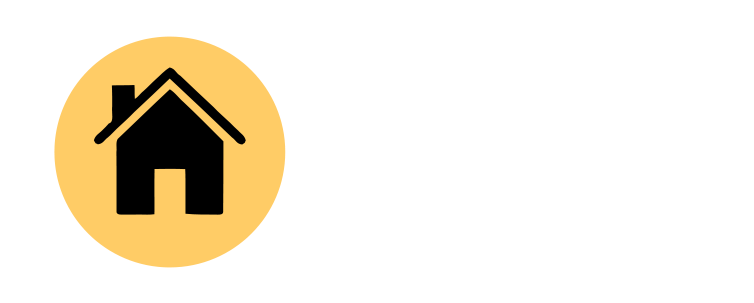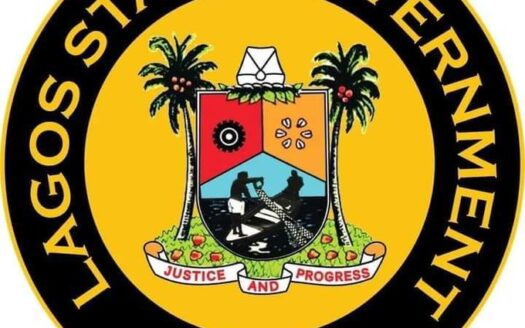Real Estate Outlook 2023: Experts predict how the sector will fare
Real Estate remains the asset class of choice in Nigeria. This is generally in line with global ranking. Nigeria is facing multiple challenges arising from poor policy choices that have negatively impacted our economy, diverse local security threats as well as globally induced challenges like the after-effects of the Covid Pandemic and the Russian-Ukraine War.
In spite of all these, the real estate sector has held out quite well and has indeed over-performed in certain areas. The peculiar nature of our economy viz a viz the paucity of other investment outlets outside the traditional stocks, bonds and fixed deposit holdings have also all helped to shore up the real estate sector.
All through the year under review, capacity utilization in our industrial cum manufacturing sector remained at about 50%, stocks and share prices were down, treasury and bond rates were down and the Naira value was sadly, on steady decline closing the year at the unofficial or black market rate of about N750 to a Dollar.
Inflation which had been trending upwards also maintained that trajectory and the year closed with the rate at about 21%. Beyond the generally known benefits of investing in real estate, the above indicators all added to make the sector even more attractive in the year under review.
The sector is generally considered the better alternative to all the other investment options highlighted above. This will explain why it performed better than expected in many instances and why the anticipated slump in prices did not happen.
Beyond the factors highlighted above, a couple of other factors also helped particular markets. For instance Lagos and Abuja have benefitted most in terms of real estate investments driven by the high level of insecurity in the country. This is because these two cities are considered the safest in the country and so more and more people are relocating to them.
Added to this are the stringent local and international monetary restrictions for exporting
There are also pockets of high value locations like Osogbo in Osun State driven by the emergence of the state as a mining haven or Owerri in Imo State driven by purely local economic factors.
Sadly hitherto vibrant cities like Port-Harcourt, Warri and Kaduna are not doing well due to the level of insecurity. Another noticeable feature of the market is the positive effect of a resilient private sector on values as can be seen in all the cities that have reported dynamic real estate market. On the whole, the sector posted a growth rate of about 4.40% in Q4 of 2022 as against 2.60% in Q4 of 2021. The sector is projected to grow by 5.20% in 2023 and its contribution to our GDP is projected to be 6.50%.
One factor which may have a positive effect on the real estate residential market is the recent announcement by the Nigerian Pension Commission that now allows people to utilize part of their pension contribution to make equity deposit for mortgage.
Other notable positive indicators include the commitment of both the Federal Government, the Federal Mortgage Bank of Nigeria and the Family Homes Funds Limited to deepen support for the mortgage sector. The Federal Government through the Federal Ministry of Works and Housing and the Family Homes Funds Limited is also engaged in direct construction and provision of housing for the low/medium income earners. As at 2022, the Family Home Funds has built about 5,400 housing units while the Federal Ministry of Works and Housing has housing projects spread over the six geographical zones of the country.
As we inched towards the end of 2022, the market gradually cooled down. We believe that a lot of investors have adopted a wait and see position as they await the results of the 2023 election.
We believe that the market will remain at the same level until the second half of 2023 when we may hopefully expect a gradual upward swing. The extent of the swing will depend on the immediate actions of the new government to stabilize the economy and foster investor confidence.
In the medium income neighbourhood of Lekki, land values initially held out in 2022 and was trending at between N450,000 to N500,000 per square metre but by the end of the year had dropped to about N400,000 per square metre.
Rental values in the Lekki area however held out very well and indeed trended upwards and closed 2022 with marginal increase of about 5% across all categories. The reason for the increase is mainly due to the demand push occasioned by the huge population in the Lekki area. Indeed Lekki is a unique vibrant market preferred by the younger generation or the millennials because of the active night life.
In Lagos Mainland the scenario is the same in the high income neighbourhoods of Ikeja GRA, Ogudu GRA, Opebi etc.
Lagos is also witnessing massive infrastructural development that is opening up the State. There has been massive investment in water transportation which has positioned water transportation as a viable alternative to road transportation.
There is also the launch of the first phase of the 27km Blue Line from Mile 2 to Marina. This train service will ease transportation and movement around the state. There is also the ongoing works on the Lekki-Epe Road which will further open up that area.
By far the most audacious scheme is the proposed 4th Mainland Bridge for which the State Government has announced the preferred bidder. As expected, this massive investment in infrastructure will expand the living space and also impact positively on property values.
The area known as Lekki now, literally stretches all the way from Lekki Phase 1 to Victoria Garden City and remains the fastest growing medium income area in Lagos with pockets of high-income areas.
Three bedroom flats have seen spikes in rents to as high as N5,000,000 per annum and detached houses to as high as N10.000.000 per annum. Land values have also risen from about N250,000 per square meter in 2020 to its current level of about N400,000 to N450,000 per square meter.
In recent times, we have seen numerous redevelopment projects in Lekki area with developers buying a plot of about 1000 square metres with existing two-family homes and redeveloping the plot to accommodate about five family homes.
This increase, will also continue to encourage the move to the suburbs of Lagos and Ogun States because in the face of stagnant incomes and rising inflation, Nigerians will keep seeking to pay lower rents to accommodate their families.
One other noticeable trend is in the renewed emphasis on the development of one and two bedroom flats which is the preferred accommodation for the millennials due to their smaller size and lower budget.
We project that the property market in Lagos will remain at near current levels until after the 2023 elections as investors adopt a wait and see mode.
Overall, the Lekki area is one of the hottest real estate markets in Nigeria. Flats of 2/3 bedrooms will remain in high demand. much higher than terraces or detached houses.
We also project that the market will rebound by the second half of 2023 by which time the new government would have taken over the reigns of power.
Rental demand is expected to move upwards by as much as 10% especially for flats with the demand increasing as the year progresses.
Abuja Real Estate Market (Residential)
The residential market in Abuja remains strong buoyed in part by the high level insecurity in the northern part of the country which has made Abuja and its environs a safe haven.
The expectation is that being the Federal Capital, the risk of bandit or terrorism attacks are less.
In recent years, the boundaries of Abuja has been extending on all sides creating suburbs to accommodate the ever increasing population. As in similar cities with huge youthful population, there is higher demand for one and two bedroom apartments. These small and mid sized units are preponderant in the suburbs and due to the high demand are doing very well.
Abuja is a city with a very stringent physical planning protocol. The effect of this is that conversion permits for the properties in the main Abuja cities of Maitama, Asokoro, Wuse, Garki etc are hard to come by and the bulk of the small and mid sized accommodation which are in high demand has to be developed in the suburbs.
Every four years, of the election cycle, new legislators enter Abuja and statistically at least 60 percent – 70 percent of them are fresh legislators coming to Abuja for the first time.
These legislators are coming with family, aides and numerous hangers on who will all need new housing. It is estimated that 400 rental properties in the range of N3m – N5m per annum, will be in demand to satisfy the housing needs of the new legislators.
It is also estimated that another 200 rental properties in the range of N1m-N2m per annum will be in demand to satisfy the needs of their aides and numerous assistants.
Values within Phase 1 of Abuja remained fairly stable at 2021 levels all through 2022 with few exceptions where marginal increase recorded. were
The projection for 2023 is that values will rebound by the second half of the year when the new government would have settled in. It is expected that a more open and business friendly government will help the city rebound by the second half of the said 2023.
Commercial (Office) Real Estate In Lagos
The take up rate for commercial real estate consisting of office buildings remains quite low. This low take up rate that was already existing by 2020 was made worse by the effect of the global Covid pandemic.
Further more, the effect of virtual work or the now common work from home model has also impacted the take up rate negatively. Not only has the market not recovered, it is envisaged that the virtual work culture is here to stay and this will certainly impact the take up rate of commercial properties in the foreseeable future.
Many companies including multi nationals now maintain just enough office space in Grade A buildings to serve as their head office to accommodate the key senior staff while the rest of the staff work from home and only visit the office for meetings when required.
Market rates for offices in 2022 remained at about 2021 levels and the level of vacancies remained high. Many rental figures are still denominated in Dollars and range between $650 – $800 per square metre per annum exclusive of service charge and other annual charges.
and was meant to add a substantial space into the letting market is now fully occupied by the developers. Ironically whilst the demand for office properties remained low, asking rates for a lot of the Grade A properties remained quite high especially when service charge is added.
The high vacancy rate may have influenced the entrance of a few grade A office buildings into the market for sale.
Even with the relaxation of the Covid induced restrictions, the poor state of our economy made recovery of the sector difficult and it ended 2022 on a low note.
Our projection for 2023 is that the market will remain slow all the through the year with a chance of recovery by 2024 depending on the state of the economy.
Interestingly, Rose of Sharon Towers on Alfred Rewane Street, Ikoyi which was completed in 2022
129. Grade B and C offices which are driven mainly by local demand will continue to do better because their rents are usually much lower.
Commercial (Office) Real Estate In Abuja
Abuja is essentially a “Government Town” or a public sector driven city with a lot of government and institutional presence. The level of private sector presence is well below that of Lagos.
Inspite of this, the Central Business District of the city is a well planned and thriving neighbourhood with some state of the art office blocks most notable of which is the Abuja World Trade Centre developed by the Churchgate Group. The inherent nature of Abuja coupled with the nations poor economic performance in the last couple of years as well as the effects of the Covid pandemic have all contributed to the high vacancy rate in office properties in the city.
There is clearly what seems an over supply of commercial space coupled with the asking rents being very high comparably. This has given rise to lots of void and spaces that for many years have continued to seek tenants.
The space demand of such companies is usually below 100 square metres which amount to a very small space in an office block offering lettable space of over 2,000 square metres.
Rents that are currently in the N50,000.00 – N70,000.00 per square metre which was the 2021 level remained unchanged in 2022 and is projected to remain at that level in 2023 should current conditions persist.
There is also the fact that adjoining neighbourhoods like Apo, Gudu, Wuye etc have a lot of existing commercial developments with some new ones under construction. Rents here are below the Central Business District rates and the good road network and ease of accessibility of major parts of Abuja really means that, there is no added advantage in remaining in the Central Business District.
One take away from our survey is that smaller units let much more quickly to professional and small and medium sized companies.
Another phenomena that impacts Abuja commercial real estate is the regular conversion of residences to commercial properties – Wuse, Gwarimpa, Wuye, and Apo etc. Demand continues to be high for these conversions as the Development Control Authorities lack the commitment and resources to control them.
For many businesses it is a convenience that cannot be overlooked – running a commercial outfit from the comfort of a converted residential property saving huge partitioning and other
associated costs and at the same time paying much lower rents than would ordinarily have been paid if located in the Business District.
Our projection is that both rent and demand will remain at about the same level in 2023.
We also project that with the expectation that the new government that will take office on May 29, 2023 will be more open and business friendly, the office rental market will start to rebound by 2024.
This post is culled from The Nigeria Real Estate Report 2023 by Ubosi Eleh + CO, and featured in Castle Lifestyle Magazine. Read here.



